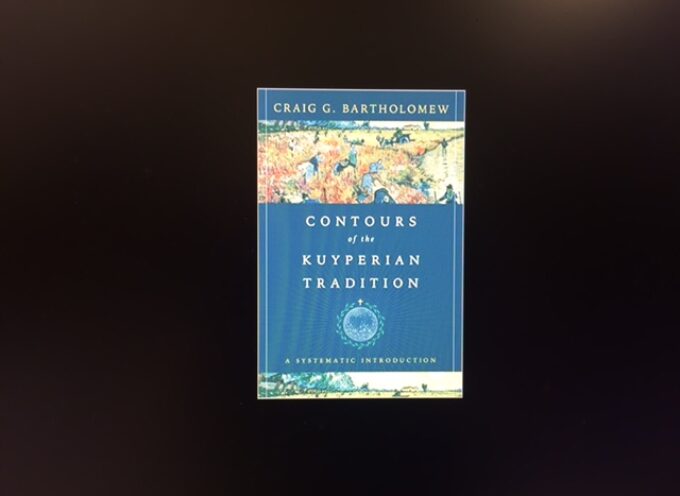In this essay, I wish to reflect on the question, “What will it profit a seminary to gain thousands of students but lose its soul?” What will our seminary gain if we develop a world-class faculty, build an efficient administration, receive a clean bill of health from our accreditors, enroll thousands of students and fill their heads with knowledge, but do not instill in our students a love for God and neighbor? What will a faculty member gain if he builds a large student following, has an impressive list of publications, and demonstrates a mastery of his subject matter, if these things are not underlain by a genuine love for God and for his neighbor? In other words how do we ensure that we are “Great Commandment faculty members” who view every seminary relationship as a “Great Commandment relationship?”
[Note: This essay was written as the opening presentation for Southeastern Baptist Theological Seminary’s 2014 Faculty Workshop. The first portion of the essay argues that the seminary should be a “formative,” rather than merely “informative,” community of learning. The second portion discusses how a professor can grow in his or her love for God. The third portion suggests specific ways a professor can love his or her “neighbor,” if the neighbor in question is a student, colleague, administrator, or staff member. The fourth portion addresses some of the academic-specific obstacles to neighbor love. The essay concludes with exhortations from C. S. Lewis and Mother Theresa.]
This question is the flipside of the one we asked during last year’s faculty workshop: “What does it mean to be a Great Commission Seminary, and how can we make every classroom a ‘Great Commission classroom’?” One of the things that is so “great” about the Great Commission is that it encompasses within its breadth the other great mandates. In particular, it encompasses and is fueled by the Great Commandment. Our love for God and neighbor motivates us to obey the Great Commission.
In Matthew 16:24-28, Jesus declared that those persons who wish to follow him must deny themselves and take up their crosses, for if they wish to save their life they must first lose it. “For what profit is it to a man if he gains the whole world, and loses his own soul? Or what will a man give in exchange for his soul?” (26). The danger which Christ holds out is that persons could love their own lives so much that in the end they lose their souls.
For this reason, when the Pharisees and Sadducees approached him and asked him to identify the greatest commandment in the law, he responded that the greatest commandment is to love the Lord God will all their hearts, souls, and minds, and to love their neighbor as themselves (Mt 22:34-40). These two commandments are the inverse of the self-love about which Christ warned in the passage above, and they form a two-step pattern which is the characteristic of all true Christianity. If a person does not love God and his neighbor, it does not matter how many good things he has done—he has lost his soul.
By way of analogy, an institution can lose its “soul” by possessing a faculty and administration who do many good things but who are not characterized primarily by their love for God and each other. For this reason, today we will reflect briefly on what it might look like for a seminary faculty to “love God” and to love their “neighbor.”
The Seminary as a Formative Community
Southeastern Baptist Theological Seminary is an institution of higher education created for the purpose of serving the churches of the Southern Baptist convention. These churches send us their people, young and old, with the expectation that, as Southeastern students, they will be shaped both intellectually and spiritually. The churches have entrusted to us the responsibility of helping men and women prepare to serve Baptist congregations and plant Baptist churches which are characterized by love for God and neighbor.
For this reason, we recognize the high responsibility of being a community marked by God-love and neighbor-love. We recognize that our mission involves more than disseminating information; it involves shaping character. We recognize that our students’ formation is affected not only by the stand-alone lectures we give but by the overall impression gained as they watch us love God, each other, and our students. In other words, our health as an organism is as important, or more important, than our efficiency as an institution.
In The Republic, Plato warns about the power of the “public” to shape a person’s thinking. A young person’s thinking is influenced:
whenever the populace crowds together at any public gathering, in the Assembly, the law-courts, the theater, or the camp, and sits there clamoring its approval and disapproval, both alike excessive, of whatever is being said or done; booing and clapping till the rocks ring and the whole palace redoubles the noise of their applause and outcries. In such a scene, what do you suppose will be a young man’s state of mind? What sort of private instruction will have given him the strength to hold out against the force of such a torrent, or will save him from being swept away down the stream, until he accepts all their notions of right and wrong, does as they do, and comes to be just such a man as they are.[1]
Plato is right about the powerful shaping influence of a crowd, and right to warn about the way a mob can adversely influence the words or actions of a person. But imagine a different type of crowd than Plato imagines—a Christian community of scholars whose love for God and each other is the primary shaping factor in their lectures, office conversations, hallway interactions, and institutional meetings.
A. G. Sertillanges was after something like this in The Intellectual Life when he wrote about the value of community for Christian scholars:
The first association of the [scholar]…is association with his fellows….If [only] six or seven [could] gather together, with the same idea, [and could work] by way of mutual teaching, becoming turn by turn pupil and master of the others….If besides lectures in the afternoon and study following on the lectures, they could talk in the evening, at supper…[seaking] of all these noble things, so as to learn more by drinking them in in conversation, than by the very lectures![2]
Sertillanges is noting the formative power of the type of things we do outside of the classroom. In Jesus’ articulation of the two greatest commandments, we now ask what it might look like for a seminary faculty to foster an environment in which love for God and love for neighbor are the primary characteristics, both inside and outside of our classrooms.
Love for God
When the lawyer tested Jesus by asking him which commandment is the greatest, Jesus replied, “‘You shall love the Lord your God with all your heart, with all your soul, and with all your mind.’ This is the first and greatest commandment” (Mt 22:37-38). He describes love for God as something involving the totality of our hearts, souls, and minds. The words heart (kardia), soul (psyche), and mind (nous) overlap each other significantly and are not used in a technically precise manner, so that the overall impression gained is that our love for God is an all-encompassing feature of Christian existence. It affects all of our words and deeds.
Take, for example, the biblical conception of man’s heart. Scripture refers to the heart over 800 times in the Old and New Testaments. It portrays true religion as being centered in the heart, which is the response-location of our covenantal relationship with God. Gordon Spykman puts it well when he writes:
The heart represents the unifying center of man’s entire existence, the spiritual concentration point of our total selfhood, the inner reflective core which sets the direction for all of our life relationships. It is the wellspring of all our willing, thinking, feeling, acting, and every other life utterance. It is the fountainhead from which flows every movement of man’s intellect, emotions, and will, as well as any other ‘faculty’ or mode of our existence. In short the heart is the ‘mini-me.’[3]
Heartfelt religion, therefore, is comprehensive and relates to all of life, and this comprehensiveness applies similarly to soul and mind. Each term refers in its own way to the whole man.
So, a professor who loves God with his heart, mind, and soul is one whose love for God applies to his classroom lectures, his interactions with colleagues and students, and his institutional responsibilities. Love for God is not an ethereal reality on a seminary campus; instead, it is a tangible reality that can be seen in each of the dimensions of our vocational life.
A professor’s love for God matters because the theological disciplines are not only scientia (science-oriented knowledge) but also sapientia (wisdom-oriented knowledge). Our lectures extend beyond the mere attempt to ascertain truth about objects in the world (science) and into the attempt to live prudently in light of that truth (wisdom).
Wisdom begins with fear of the Lord (Prov 9:10; 111:10), and, therefore, theology is more than the dissemination of true information (science) because it involves first and foremost a personal relationship between the knower and the known. True knowledge is rooted in love for God. Gerhard von Rad writes,
The thesis that all human knowledge comes back to the question about commitment to God is a statement of penetrating perspicacity. . . . Israel attributes to the fear of God, to belief in God, a highly important function in respect of human knowledge. She was, in all her seriousness, of the opinion that effective knowledge about God is the only thing that puts a man into a right relationship with the objects of his perception.[4]
Our teaching should be in every instance shaped by the desire to do more than disseminate true information. Our teaching strategies and methods should be crafted with the express purpose of helping our students live wisely by loving God and neighbor.
Donald Whitney’s Spiritual Disciplines lists ten personal and corporate disciplines that promote growth in one’s love for God. He draws upon Paul’s exhortation to Timothy, “Discipline yourself for the purpose of godliness” (1 Tim 4:7), and writes, “In my own pastoral and personal Christian experience, I can say that I’ve never known a man or woman who came to spiritual maturity except through discipline. Godliness comes through discipline.”[5] Below are a few of those spiritual disciplines, along with a brief application of them to seminary life.
- Scripture Intake: before starting work each morning, take some time to read Scripture slowly and thoughtfully, prayerfully considering how those words of God might fuel our love for him and shape our day. Create space within our instructional environments to read and reflect upon passages of Scripture.
- Prayer: determine to pray for our colleagues individually and for our students corporately. Pray especially for those with whom we might be at odds. Create space within our instructional environments to lead our students in prayer, being mindful that they might be learning to pray by watching us pray.
- Worship: involve ourselves fully in corporate worship at our churches and chapel services. Allow our Scripture intake and prayer time to issue forth in a worshipful demeanor in the classroom and in other campus activities.
- Evangelism: find ways to break outside of our seminary and church vocations to meet unbelievers and witness to Christ and his gospel. Share these experiences with our students.
- Service: approach our vocation as servants of our Southern Baptist churches and servants of our students. Capitalize especially on opportunities which might inconvenience us personally, thereby modeling for our students the way they may serve their churches one day.
- Silence and Solitude: carve out space for silence and solitude in the midst of our noisy and busy days. Help our students understand the importance of laying aside their phones and computers, and stepping away from their social life, in order to be alone with God.
Love for Neighbor
After Jesus responded to the lawyer by articulating the greatest commandment, he went beyond the lawyer’s question by providing a “second greatest” commandment. “And the second is like it: ‘You shall love your neighbor as yourself.’ On these two commandments hang all the Law and the Prophets” (22:39-40). In answering this unsolicited question, Jesus makes the point that one’s love for God overflows into a love for one’s neighbor. Indeed, in Scripture there remains the closest of connections between the two, even going so far as to say that if a man purports to love God, while in reality hating his brother, that man is a liar (1 Jn 4:20).
Jesus declares that these two commandments not only serve as the greatest of all the others, but as the framework upon which the others hang. If a person loves God and his neighbor, he will not only not have problems with the other commands but he will be prepared to truly and fully obey them. D. A. Carson writes, “The two commandments, Jesus says, stand together. The first without the second is intrinsically impossible (cf. 1 John 4:20), and the second cannot stand without the first—even theoretically—because disciplined altruism is not love. Love in the truest sense demands abandonment of self to God, and God alone is the adequate incentive for such abandonment.”[6] If a person loves God, that love will overflow toward his neighbor.
In Renewing Minds, David Dockery frames Christian higher education in terms of Paul’s charge to the Romans to be transformed by the renewing of their minds (12:2). In chapters six and seven, he addresses the challenge of transforming educational institutions into grace-filled communities. He draws upon Romans 12:9-21 in order to list twelve characteristics of a grace-filled community.[7] Here, I offer a similar list of characteristics but apply them to the way we as a seminary faculty might love one another and love our students.
- Affection (10): appreciate what is good about each other; from this we are likely to experience genuine brotherly affection for one another.
- Honor (10): honor one another by, for example, promoting each other’s projects and writings and speaking well of one another in public and in private.
- Diligence and Fervency (11): work hard in our vocation as a way of reflecting well upon one another and upon the seminary.
- Steadfast Prayer (12): pray for one another; over time, seek to know one another well enough for our prayers to have a depth dimension.
- Generosity (13): be generous with our time and intellectual capital, helping one another with our teaching and writing projects and with other matters of our common life.
- Hospitality (13): welcome new faculty members to campus; welcome each other into interdisciplinary and trans-disciplinary conversations.
- Blessing and Peace (14): believe the best about our colleagues and bless them, even if we feel we have been slighted in some manner.
- Empathy (15): rejoice when our colleagues succeed or experience blessing; walk alongside of them and encourage them when they are discouraged or experience sadness.
- Harmony and Humility (16): resist the pride that is so easily fostered by the academy; live humbly and in harmony with our colleagues and students.
When our “Neighbor” is a Student
God has given us a vocation as professors precisely because he has given to other persons the vocation to be students. We are called to teach, and they are called to learn as we teach, and thus our life as professors is inextricably bound up in relationships with students. Every dimension of our job as faculty members—creating and assessing student learning outcomes, lecturing, attending chapel, keeping office hours, researching and writing during sabbatical—is somehow related to our students.
Our professorial calling is both sciential but sapiential. Because it is sciential, we will love our students by working hard to craft the best lecture notes possible. We will continue to grow and learn by keeping up with the scholarship in our disciplines and even reading in related disciplines. Similarly, we will continue to grow in our understanding of the teaching and learning process, and in our capability as communicators. Our lecture notes and teaching style will reflect this growth and development.
Because it is sapiential, we will seek to model godliness for them by showing how the truths we teach them in the classroom apply to godly living outside of the classroom. We will love them well enough to listen to them and understand them corporately and individually. To understand them corporately, we can do a little bit of reading about this generation of students. When we take the time to learn about this generation of students (take, for example, the “Millennials”) corporately, we will be ready to respond when we see that they want to be discipled and mentored (positive) or when we see that they feel entitled to a close friendship with their professors (negative). Or, alternately, we will understand that their formative pedagogical environments were marked by grade inflation and will be better able to respond graciously (and firmly) when they experience great difficulty receiving honest assessments of their abilities. When we have opportunity to get to know our students personally, we will have an even deeper comprehension of how to facilitate their learning process.
When our “Neighbor” is a Colleague
As faculty members at Southeastern, we have a unique opportunity to create an environment which our students will not soon forget, an environment in which we as faculty members genuinely love one another, help each other flourish, promote each other’s work, and share in each other’s victories and failures. This sort of environment is not fostered quickly or easily but over the course of time, love and trust can take root in the seminary’s soil, and the fruit of that love and trust will be a soil rich for the cultivation of gospel ministers.
Younger faculty members will love their more seasoned colleagues by approaching them with the posture of a learner, and with respect, deference, and gratitude for their life and work. They will seek to view their colleague graciously rather than cast judgment upon him. In conversation with a veteran faculty member, a younger professor might find himself asking: what have you found to be an effective means of teaching? Will you give me advice on how to interact with an administrator when I wish to make a request or when I disagree with a policy? How would you advise me to “hone my craft” as a teacher and writer, with an eye toward long-term flourishing?
Veteran faculty members will love their less-experienced counterparts by approaching them likewise with the posture of a learner, with respect, and with gratitude for their life and work thus far. They will seek to be gracious rather than judgmental, and will use their wisdom and social capital to empower, encourage, and edify their younger colleagues. In conversation with a younger faculty member, an older faculty member might find himself asking: what are some recent trends in scholarship which you encountered in doctoral studies and of which I might not be aware? Is there any way I can help you get acquainted with seminary life? If you ever need counsel or assistance, you won’t hesitate to ask, right?
When Our Neighbor is an Administrator
Faculty members and administrators likewise share a common space and a common mission: serving the churches of the SBC by preparing our students to serve the church and fulfill the Great Commission. Administrators must approach their task as a servant’s task and faculty members must help them serve well.
An administrator who loves his faculty colleagues will use the resources of his office to help them flourish. He will put structures, systems, and policies in place which encourage this flourishing instead of discouraging it. He will represent the President’s Cabinet to the faculty and will represent the faculty concerns and questions to the Cabinet. He will communicate often and clearly. He will speak the truth in love, and seek to love before seeking to speak.
Faculty members likewise will love administrative personnel by supporting them. They will work within the structures, systems, and policies which are in place, but will also draw upon their own wisdom to ask questions or offer critiques when those structures, systems, and policies are not serving the seminary community well. Just as administrators will work to communicate clearly and graciously to their colleagues on faculty, so faculty members will work to communicate similarly with administrators.
When Our Neighbor is a Staff Member
Faculty members find themselves working alongside of staff members such as secretaries, administrative assistants, IT support staff, and groundskeepers. These are the sometimes “invisible” people who get very little recognition for what they do, but whose work is vital to the health of the seminary and enables us to do everything we do. As faculty members, our demeanor toward staff members should be one of recognition, respect, and gratitude.
Faculty members can love their staff member neighbors by learning their names and thanking them for their hard work. Even a small gesture, such as stopping to thank the landscapers for their artful work on the quad, can make a big difference. Additionally, we can love them by being careful not to have an air of privilege or a demanding attitude. A faculty member will be careful, for example, not to be irritated with a tech employee who cannot immediately or easily fix the problem we are encountering on our computers, or by not being impatient with the Registrar’s Office if there are classroom assignment issues at the beginning of the semester.
Some Challenges
Thus far, we have recognized that the two greatest commandments—love for God and love for neighbor—form the soul of a Christian seminary campus, and that it would be a tragedy for our seminary to gain thousands of students but lose our soul. In an attempt to ensure that we keep care for the soul of our seminary, we seek to apply the two greatest commandments to the life of our academic community. Our love for God should cause us to be deeply spiritual men and women whose spirituality issues forth in a real love for God and one another.
Our attempts to build just such a community will be met with various challenges. One challenge is vocational: the reality is that a professor’s workplace calling is only one out of several callings. Each professor finds himself also called to a family, church, and community, and in some instances even another workplace. The existence of these multiple callings—and the many relationships encompassed by those callings—limits the depth and breadth of our relationships with one another. In order to meet this challenge, we must pray for wisdom to know how to be faithful in our professorial calling while not allowing it to trample our other callings (just as we need to be empathetic with our students as they struggle to find the same balance).
A second challenge is spiritual: we are not by nature a loving people. Or, better, we are in fact very loving, but our love is directed toward self rather than toward God and others. Luther described this by saying that we are incurvatus se, or, curved in on ourselves. Ironically, we tend to recognize this flaw in others, but not in ourselves. When a colleague behaves in a manner that offends us, we tend to blame it on their flawed character, but when we behave in the same manner, we tend to blame it on environmental factors or claim to be misunderstood. In order to meet this challenge, we must pray God will graciously expose to us the ways in which we are incurvatus se, so that he can redirect that love toward himself and others.
A third challenge is existential: love is risky and often involves pain. If we genuinely care for one another, and have entered into one another’s lives, we will be more likely to experience the pain of, say, being exposed for who we really are or of not having our brotherly love returned adequately. C. S. Lewis writes, “There is no safe investment. To love at all is to be vulnerable. Love anything, and your heart will certainly be wrung and possibly be broken. If you want to make sure of keeping it intact, you must give your heart to no one.”[8] And again, “The only place outside of Heaven where you can be perfectly safe from all the dangers and perturbations of love is Hell.”[9] The way to meet this challenge is to risk entering into genuine camaraderie with our colleagues rather than keeping a distance and, by keeping a distance, remove ourselves from the possibility of pain.
A fourth challenge is social and cultural: our shared American social and cultural context nudges us toward an individualism which subverts true community. The sociologist Peter Berger argued that our society has become increasingly privatized.[10] By this he means that we privatize our deepest beliefs rather than share them publicly, and if we cannot share our beliefs publicly, we don’t have much to share. Our common life, therefore, is superficial. In essence, we are an aggregate of individuals held together by superficial bonds. Similarly, political scientist Robert Putnam famously argued that American society has experienced an unprecedented social and cultural collapse precipitated in part by our isolation from one another.”[11] We have learned to succeed in our vocation without building real relationships with our colleagues. We meet this challenge by providing an “island” of community in a sea of individualism and isolationism.
A fifth challenge is professional. As scholars, we were trained to do “original” research and to be critical of the work of others. However, both of these features of our training can work against the desire to build community. Our quest for originality can keep us from recognizing and relying upon others’ good work and can keep us from shared projects such as co-authorship. Our training in scholarly criticism (not bad in itself) can easily become a personal disposition that is overly critical, unfairly critical, and unlikely to see goodness and beauty which exists in our colleagues’ life and work. We meet this challenge by viewing ourselves as a community of scholars who engage together in an extended argument toward truth.
A sixth and final challenge is likewise professional. David Dockery notes Max Weber’s distinction between institutions which are contract-based (Gesellschaft) and those which are community-based (Gemeinschaft).[12] In a contract-based model, which is the prevalent model in the United States, faculty relate to their institution out of a sense of contractual obligation rather than a sense of belonging. In the community-based model, faculty possess a sense of belonging, are linked relationally and emotionally, and share a common mission and vision. We can meet this challenge, similarly to the one above, by forging a genuine community of scholars who are linked relationally in a common mission.
In Conclusion
The single greatest commandment is to love the Lord our God with the totality of who we are. That love, in turn, overflows toward our neighbors. The blessedness that accompanies our love for God likewise accompanies our love for our neighbors. We actually begin to find our happiness in loving one another and, together, loving God. This sort of community—one marked by love for God and neighbor—is the sort of community we are sending our students out to foster as they pastor, plant churches, and extend the gospel to the ends of the earth. Although the seminary is not a covenanted community in the sense that a local church is, the analogy nonetheless remains.
On the one hand, if we do not create for our students a community which is marked by the very same love we are teaching them to create in their own churches, we do our students a great disservice. We stand at the lectern as hypocrites and deny them the foretaste of God’s kingdom which we ought to be. On the other hand, if by God’s grace we do succeed in creating and maintaining such a community, we give our students a preview of what they might lead their churches toward one day and a foretaste of God’s coming kingdom.
Although each of us is deficient in loving God and each other and, although each of us is inclined in our own ways to sin against God and others, yet each of us is on a path toward conformity to Christ. God himself has put us on this path. Even though our progress on the path is haltering and uneven, nonetheless it is God himself who has saved us and God himself who preserves us to the end. Until that day comes, may we pray for God’s special grace and strength to love him and to love each other so that our community can be a preview of his coming kingdom.
In making every relationship a Great Commandment relationship, we obey the two greatest commandments, commandments which fuel our desire to obey the Great Commission and enable our seminary truly and fully to be a Great Commission Seminary.
______________________________
“Do not waste time bothering whether you ‘love’ your neighbor; act as if you did. As soon as we do this we find one of the great secrets. When you are behaving as if you loved someone you will presently come to love him.” –C. S. Lewis
“Let us always meet each other with a smile, for the smile is the beginning of love.” –Mother Theresa
[1] Plato, The Republic, 492b-c. Plato, Complete Works (Cambridge, UK: Hackett, 1997), 1114-1115.
[2] Sertillanges, The Intellectual Life: Its Spirit, Conditions, Methods (Washington, DC: Catholic University of America, 1987), 54.
[3] Gordon Spykman, Reformational Theology (Grand Rapids: Eerdmans, 1992), 218.
[4] Gerhard von Rad, Wisdom in Israel, trans. James D. Martin (London: SCM, 1970), 67-68.
[5] Donald S. Whitney, Spiritual Disciplines for the Christian Life (Colorado Springs: NavPress, 1991), 15.
[6] D. A. Carson, Matthew, in The Expositor’s Bible Commentary, ed. Frank E. Gaebelein (Grand Rapids: Zondervan, 1984), 464.
[7] David Dockery, Renewing Minds: Renewing Church and Society through Higher Education, rev. ed. (Nashville: B&H, 2008), 94-97.
[8] C. S. Lewis, The Four Loves (New York: Harcourt, 1983), 121.
[9] Ibid., 121.
[10] Peter Berger, The Sacred Canopy: Elements of a Sociological Theory of Religion (New York: Anchor, 1969).
[11] Robert Putnam, Bowling Alone (New York: Simon & Schuster, 2000).
[12] Dockery, Renewing Minds, 90-91; Max Weber, Economy and Society (Berkeley: University of California Press, 1978); Weber was drawing upon Ferdinand Tönnies, who coined these two terms in order to contrast two different types of social connections. Ferdinand Tönnies, Gemeinschaft und Gesellschaft, Leipzig: Fues’s Verlag. (Translated, 1957 by Charles Price Loomis as Community and Society, East Lansing: Michigan State University Press.)
Subscribe
Never miss a post! Have all new posts delivered straight to your inbox.








Great ideas! We all need a formative community where we can openly love God and one another. There are 50+ “one another” commandments in the New Testament and we need a body of believers where we can freely obey those commandments. This takes us beyond church as usual. Check out the book “Beyond Church” @ http://amzn.to/2pXRFkI.